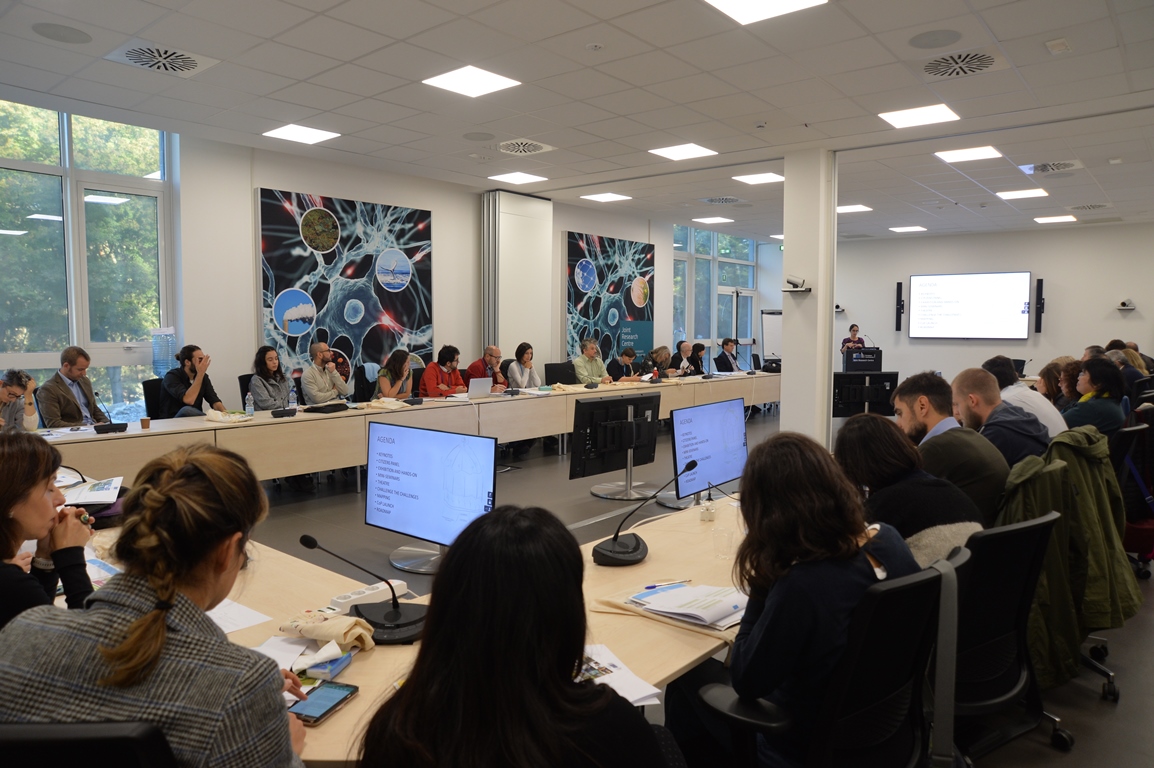About
 The Community of Practice of the Competence Centre on Participatory and Deliberative Democracy can help innovate the citizen-science-policy interface by researching participatory and deliberative methods across different levels of governance.
The Community of Practice of the Competence Centre on Participatory and Deliberative Democracy can help innovate the citizen-science-policy interface by researching participatory and deliberative methods across different levels of governance.
Democracy is a core European value on which the European Union is based. But democracy in the EU and in its Member States is faced with challenges: a growing distance between citizens and elected representatives, a loss in trust in European institutions, the rise of extremism and increasing political polarisation. The EU is responding to these challenges through a number of policies and actions to strengthen ties between citizens, EU institutions and Member States. To support these actions, there is a need for new tools and methodologies to equip the European Commission and other EU institutions to ensure inclusiveness and shared visioning in policy. The new Competence Centre on Participatory and Deliberative Democracy aims to meet this demand by providing concrete support to European institutions’ initiatives, as well as to the variety of participatory and deliberative activities and projects across the EU.
We can potentially overcome some of the difficulties policy making is facing by involving citizens more, not least because it could help with ensuring the social robustness of those policies, in other words, answering actual societal concerns and desires. Citizen engagement, from this broader perspective, is not just about exploring opinions and interests, or eliciting knowledge and values. Instead, it is about openly discussing matters of concern, contention, and at times controversy. Engagement, then, will enable citizens to influence and shape policy by making sure they are involved in every part and at all relevant stages of the policy cycle. Thereby, citizens are empowered to take ownership of the European Project and what matters to them. By the same token, citizen engagement contributes to a better understanding of the EU and its decision-making processes.
To ensure a genuine engagement of citizens in the policy cycle, more could and should be done to go beyond mere stakeholder consultation. By establishing and maintaining citizen engagement in the whole policy cycle, the ‘evidence’ provided in its different steps becomes inclusive of and open to citizens’ voices, concerns, expectations, knowledge and imaginaries about EU governance.
Activities can be orientated to future thinking, either via participatory foresight or futuring tours, for example. Increasingly, social media is also being used to engage citizens in debates about policy issues. Other types of methodologies focus on data gathering activities such as Citizen Science. Hands-on methodologies are also becoming very popular, through "makerspaces" or "fablabs", and they are sometimes designated as "hackatons". At EU institutional level we are developing the scaffolding to facilitate these processes in-house, with guidance, training, tools and other resources.
The main objectives of the Community of Practice are as follows:
- To strengthen and broaden the evidence base process, enhance knowledge and provide the Commission with a holistic and socially robust overview of the topic.
- To communicate and highlight the importance, contribution and potential of citizen engagement in all phases of the policy cycle.
- To connect people, enable open dialogue and share interests, views and ideas among colleagues involved in citizen engagement practices, providing a space for sharing best practices, lessons learnt, methodologies, and data in citizen engagement practices.
- To explore how citizen engagement practitioners frame their work and anticipate how it will influence the policy cycle.
- To identify possible synergies, support coordination among activities and foster collaborative as well as inter- and transdisciplinary initiatives.
- To strengthen JRC capacity to provide citizen engagement services as part of its support to policy DGs.
- To contribute to the delivery of specific major joint outcomes such as flagship reports, meetings and events.
- To propose demonstrators, i.e. topics in priority policy areas where different approaches to citizen engagement can be deployed and experimented with.
- To learn from communities about their own community-led engagement practices and, conversely, to empower those communities with knowledge generated through the projects run by the members of this Community of Practice.
Mission
The mission of the Community of Practice of the Competence Centre on Participatory and Deliberative Democracy is to enriching the EU knowledge base on participatory and deliberative practices, bringing together the existing, but so far scattered, expertise. This Community of Practice enables the EC to draw, and build on, an extended pool of expertise. More, the Community of Practice aims to build capacity on citizen engagement in policy making by providing services, guidance and tools. It will also improve information sharing and enhance the collaborative and more efficient work among relevant actors of the domain, with the overall aim to strengthen the contribution of citizen engagement and its integration into EU Policy cycle.
This “community” therefore includes and engages with those who carry out different forms of participatory and deliberative democracy practices using a variety of tools to assess outcomes, and/or maintain spaces where citizen engagement can take place.
Contact us at: EU-CITIZEN-ENGAGEMENT@ec.europa.eu
Subscribe to our newsletter: CC-DEMOS Newsletter